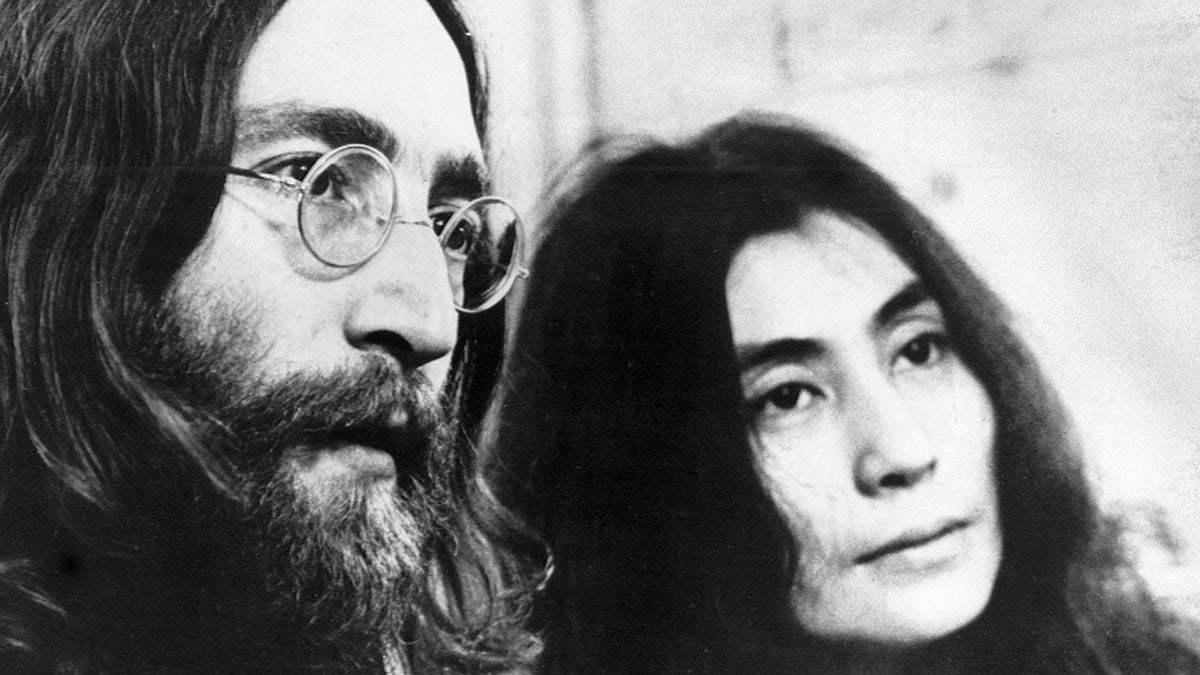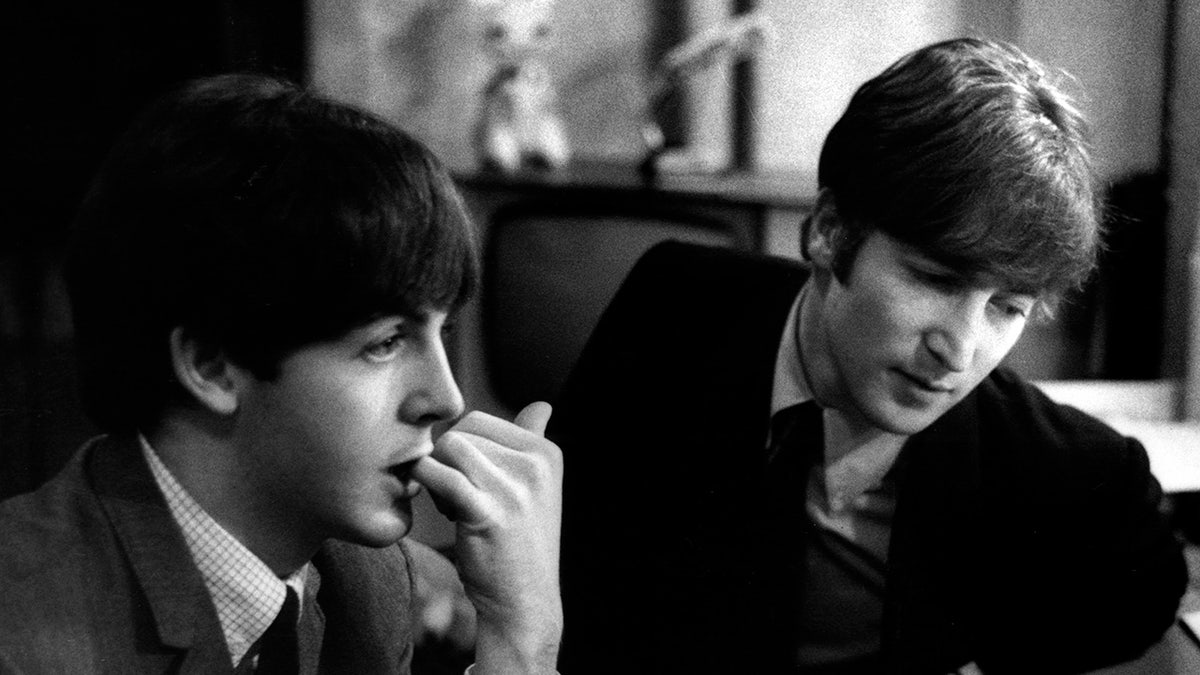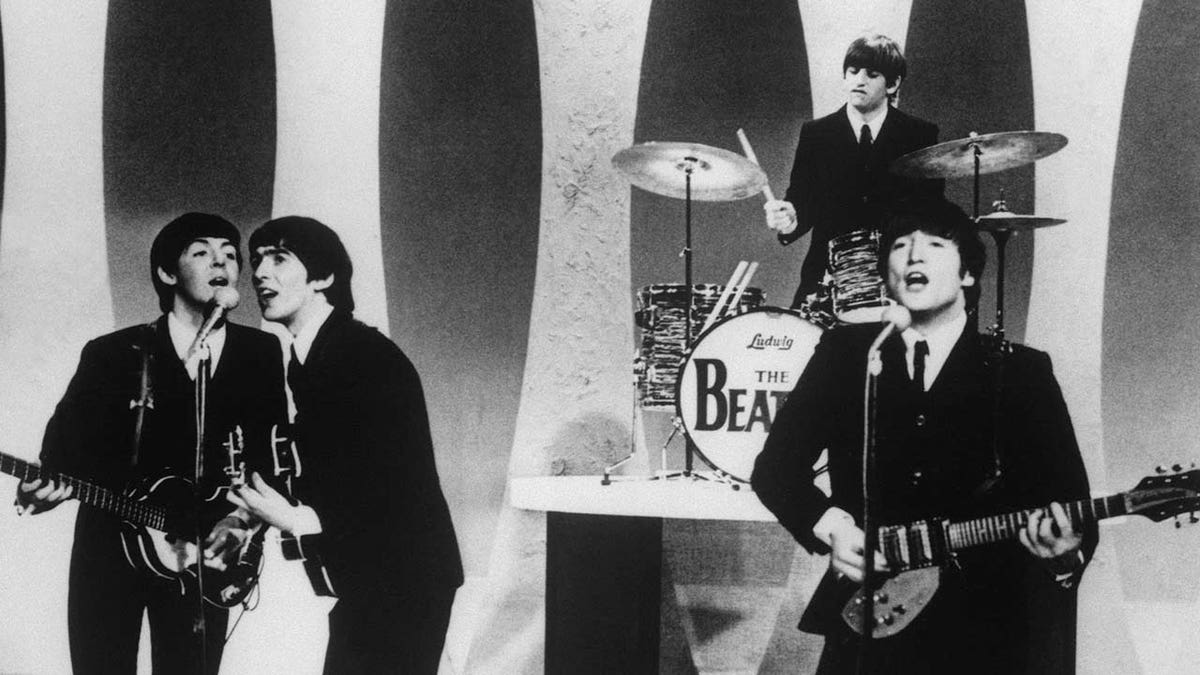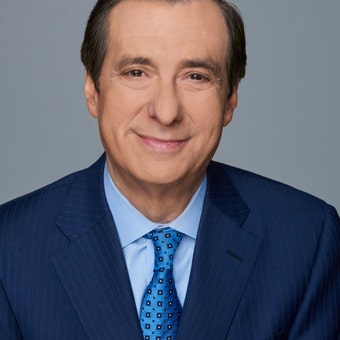FOX, CNN showed ‘bravest’ war coverage despite other media mistakes: Liz Claman
‘Reason’ senior editor Robby Soave and FOX Business anchor Liz Claman discuss what the media have done right and wrong during this war period on ‘MediaBuzz.’
There was one member of the Beatles who never shied away from political protest: John Lennon.
He was passionately against the Vietnam War, but also wary of protestors using violence, as he declared in the song "Revolution":
"You say you want a revolution, well you know, we all want to change the world… But when you talk about destruction, don’t you know that you can count me out, in?"
He held weeklong bed-ins for peace with Yoko, in Amsterdam and Montreal. In his signature song "Imagine," he challenged the world to move past war:
"Imagine there's no countries, it isn't hard to do. Nothing to kill or die for, and no religion too. Imagine all the people, livin’ life in peace." And of course, he wrote "Give Peace a Chance."
THE SCOURGE OF ANTISEMITISM IS NOW GLOBAL AND INESCAPABLE
Paul McCartney had political views, but he rarely interjected them into songs, and very subtle – "Blackbird," for instance, was an allegory about America’s civil rights struggles.
I bring this up, as you probably know, because the last Beatles song is being released today, based on Lennon’s lyrics and piano.
And with a boost from artificial intelligence.
"Now and Then" was recorded by Lennon on a cassette a few years before his life was tragically cut short in 1980. The tape was labeled "For Paul." Yoko Ono sent it to McCartney in 1994. The three surviving Beatles were able to record and release two songs based on the cassette, "Real Love" (which I thought was terrific) and "Free As a Bird."

John Lennon (1940-1980) formed the Beatles in 1960 with Paul McCartney (1942-), George Harrison (1943-2001) and Ringo Starr (1940-). Before being signed to Parlophone in 1962 The Beatles were found playing in the Cavern Club in Liverpool and venues in Hamburg, Germany. They went on to become the most successful pop group of all time and finally split in 1970. In 1965 Lennon, along with the other Beatles, was awarded the MBE, although he later returned his as a protest about British involvement in the Vietnam War. Lennon married the Japanese avant-garde artist Yoko Ono in March 1969. The Beatles finally split in 1970. Lennon was murdered in New York on 8 December 1980 by Mark Chapman. (SSPL/Getty Images)
They tried on the third song, but the quality was just too low. George Harrison called it "f*** rubbish." And it was scrapped until recently, when technology used by producer Peter Jackson made it possible to isolate the vocals.
"There it was, John’s voice, crystal clear," McCartney said. "It’s quite emotional. And we all play on it, it’s a genuine Beatles recording. In 2023, to still be working on Beatles music, and about to release a new song the public haven’t heard, I think it’s an exciting thing." That’s an understatement.
Ringo Starr said: "It was the closest we’ll ever come to having him back in the room so it was very emotional for all of us. It was like John was there, you know. It’s far out." And groovy.
NIKKI HALEY HAILED FOR IOWA SURGE, BUT TRUMP STILL DOMINANT
I heard a bit of it yesterday in a short documentary on YouTube, and liked what I heard. First there was John’s vocal, which was strong, resonant and so achingly familiar. Then Paul and Ringo added bass and drums, and a souped-up version of George’s guitar solo.
The opening lyrics:
"I know it’s true
"It’s all because of you
"And if I make it through
"It’s all because of you."

LONDON - 30th DECEMBER: Paul McCartney and John Lennon (1940-1980) from The Beatles posed backstage at the Finsbury Park Astoria, London during the band's Christmas Show residency on 30th December 1963. (Photo by Val Wilmer/Redferns) (Val Wilmer/Redferns)
"Now and Then" is a ballad, not one of John’s all-out rockers, and it does sound like the Beatles. It won’t rank up there with the group’s greatest hits, but it’s a gift. With McCartney at 81, and Starr at 83, touring right now, we should be grateful. (So much for "when I’m 64.")
Consider the backdrop: John, Paul, George and Ringo were working-class Liverpool kids who played in sometimes sleazy clubs, and were turned down by every major record label, until Parlophone’s George Martin decided to take a chance on them.
Then they became the greatest band in rock history, and Lennon-McCartney became one of the greatest songwriting teams in history, their work covered by hundreds of top musicians. They were a cultural phenomenon, surrounded by what was dubbed Beatlemania. And as they experimented and matured with such albums as Sgt. Pepper’s and Abbey Road, they changed the face of music forever.

(Original Caption) 6/1966-The Beatles are shown performing on the Ed Sullivan TV show. (Getty)
More than 60 years later, they still have an enthusiastic following, including some grandchildren of the original fans, and have their own channel on Sirius XM.
Lennon was the early leader (Paul and George joined his band, the Quarrymen) and sang lead on most of the early Beatles songs.
But he also had long fallow periods, especially in the late sixties when he developed a serious addiction to heroin and other drugs.
Lennon’s anti-war crusading had consequences as the Nixon administration went after him. After he met with radical activists in New York, friends such as Abbie Hoffman and Jerry Rubin, in 1971, the FBI put the ex-Beatle under surveillance. A year later, immigration authorities tried to deport him, using an old marijuana conviction as the pretext.
The bureau’s files, obtained by NPR, said "Lennon should be arrested, if at all possible, on possession of narcotics charges, which would make him more immediately deportable."
SUBSCRIBE TO HOWIE'S MEDIA BUZZMETER PODCAST, A RIFF ON THE DAY'S HOTTEST STORIES
In a letter from J. Edgar Hoover to Richard Nixon’s chief of staff, H.R. Haldeman, the FBI chief began: "John Winston Lennon is a member of The Beatles singing group." As if, what, nobody knew that? And there was a Keystone Kops aspect at times: the bureau sent out a purported photo of Lennon, one of the world’s most recognizable figures, that was actually an East Village folksinger.
After a four-year legal battle, Lennon won a green card once Jerry Ford was president.
CLICK HERE TO GET THE FOX NEWS APP
He was a remarkably creative, witty, unconventional and rebellious figure. And now, with this last Beatles song, Lennon’s voice lives on.











































